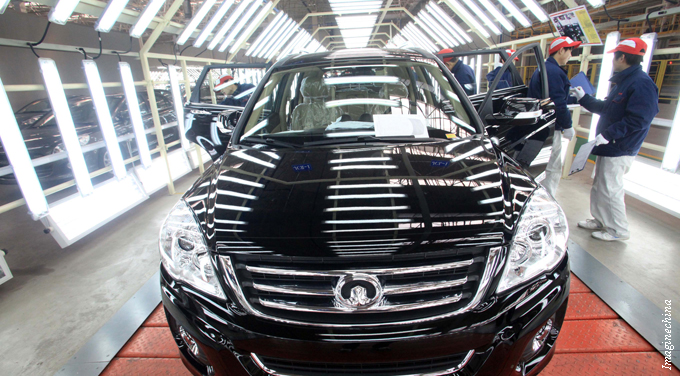Great Wall Motor’s (2333.HKG, 601633.SHA) Haval H8 is a large, luxury SUV with a six-speed automatic transmission, a 2-liter turbocharged engine and, as the company disclosed on Monday, some significant problems. Great Wall said the release of the model will be delayed by three months to improve product quality. The firm’s stock price took a more-than 12% dive on that news, falling to a five-year low, and now investors are wondering what’s in store in 2014 for one of China’s largest automakers. No doubt about it, the delay will hurt sales in the first quarter of the year as well as confidence in the brand’s ability to put new models on the market. China Galaxy International said investors shouldn’t worry. The delay will have “no direct impact on sales volume,” the brokerage said in a note on Wednesday, maintaining a “buy” rating on the company. That’s an optimistic perspective on what Great Wall hopes is just a three-month delay. “In my personal view, I think it’s going to take longer than that because this is a product development issue,” Tze Shen Cheam, an auto analyst at CIMB Bank, said on Thursday from Hong Kong. Cheam said the delay could be at least six months as some of the fundamentals of the vehicle must be reviewed. Great Wall’s Haval H8 packs some power under the hood but there’s little to pull it out of the mud for the next few months.
Banks keep tunneling in 2013
Aggregate financing in China in 2013 hit US$2.85 trillion, a record high, yet the share of new loans in that figure dropped to 51% from 52% the year before. That means money that Chinese banks were lending out was not reaching borrowers through standard lending practices. Instead, in 2013 an increased amount of cash was being tunneled into China’s shadow banking sector via off-the-books wealth management products (WMPs) despite regulators’ increased efforts to stop shadow lending. If anyone is at risk here, it’s the investors who have piled money into WMPs. Industrial and Commercial Bank of China (ICBC; 1398.HKG), the biggest of China’s big four lenders, has said it has no intention to repay investors should a troubled US$495.3 million trust product default. Barclays says the central bank should allow defaults in this risky segment of the market that has since last year appeared to have an implicit government guarantee. For now, the growth rate in off-balance-sheet lending still poses a relatively small risk to banks and China’s financial system, Chen Xingyu, a Shanghai-based analyst at Philip Securities, said on the phone. “This is the key issue right now but, in the short term, this risk is still under control by the government.”
Bottled water a new source of Evergrande profits
Evergrande Real Estate Group (3333.HKG) is no stranger to expanding outside of its primary sector, property. Back in 2010, Evergrande acquired failing Guangzhou Football Club and turned it around into one of the best teams in Asia. Now, it’s trying its hand in the consumer goods market. In November, the Guangzhou-based real estate developer launched its own high-end bottled water, Evergrande Spring. On Sunday, Xu Jiayin, owner of the group, stated that the company would continue to expand into the consumer goods market due to the success of the product. Initially, this may not impress investors looking “to invest in a more pure play in China property when investing in Evergrande stock,” Karen Kwan, a Hong-Kong based analyst for Kim Eng Securities, said in an email. However, “if this business performs much better than expected, it could be a positive surprise,” said Kwan, noting that bottled water offers high margins and appears to be expanding as a sector. That could encourage Evergrande to expand its consumer goods line to bottled tea, coffee, juice and even alcohol – something with which to toast the soccer team’s continuing success.
IPO Watch
Hong Kong markets were quiet this week with listings but over on the mainland a huge fuss has erupted over the resumption of IPOs. After pledging to scale back state intervention and give markets a greater say in pricing debut stocks, regulators weighed backed in and reportedly coerced several companies to revise their listing prices, which officials deemed too high. Of around 50 companies that have been given the OK to press ahead with a mainland IPO, six have now decided to postpone their listings. Such incidents are likely to push more companies to seek an overseas IPO.


